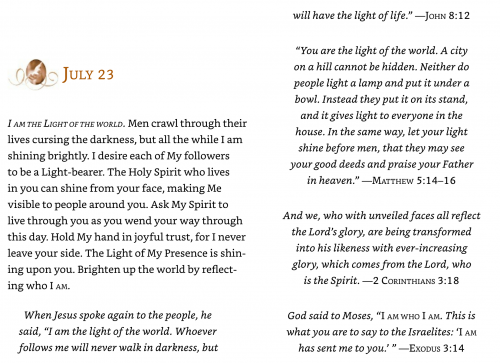Great Love
Thursday, July 23, 2020
One of the lessons we might learn from the Gospel stories of Mary Magdalene is that, in the great economy of grace, all is used and transformed. Nothing is wasted. God uses our egoic desires and identities and leads us beyond them. Jesus’ clear message to his beloved Mary Magdalene in their first post-resurrection encounter is not that she squelch, deny, or destroy her human love for him. He is much more subtle than that. He just says to her “Do not cling to me” (John 20:17). He is saying “Don’t hold on to the past, what you think you need or deserve. We are all heading for something much bigger and much better, Mary.” This is the spiritual art of detachment, which is not taught much in the capitalistic worldview where clinging and possessing are not just the norm but even the goal. In her desire to cling to Jesus and his refusal to allow it, we see ourselves reflected as in a mirror. We are shown that eventually even the greatest things in our lives—even our loves—must be released and allowed to become something new. Otherwise we are trapped. Love has not yet made us free.
Great love is both very attached (“passionate”) and yet very detached at the same time. It is love but not addiction. The soul, the True Self or Whole Self, has everything, and so it does not require any particular thing or person. When we have all things in Christ, we do not have to protect any one thing. The True Self can love and let go. The separate, small self cannot do this. I am told the “do not cling to me” encounter between Jesus and Mary Magdalene is the most painted Easter scene. The artistic imagination knows that a seeming contradiction was playing out here: intense love and yet appropriate distance. The soul and the spirit tend to love and revel in paradoxes; they operate by resonance and reflection. Our smaller egoic selves want to resolve all paradoxes in a most glib way. We only have to look around at all the struggling relationships in our own lives to see that it’s true. When we love exclusively from our small selves, we operate in a way that is mechanical and instrumental, which we now sometimes call codependent. We return again and again to the patterns of interaction we know. This is not always bad, but it is surely limited. Great love—loving from our Whole Selves connected to the Source of all love—offers us so much more.
The ego would like Mary Magdalene and Jesus to be caught up in a passionate love affair. Of course they are, in the deepest sense of the term, but only the True Self knows how to enjoy and picture a love of already satisfied desire. The True Self and separate self see differently; both are necessary, but one is better, bigger, and even eternal.
Story from Our Community:
During this global pause, I am navigating a life-threatening illness which brings daily suffering. As I consider the gentle, calm, lifegiving words from James Finley in [a recent] meditation, I am reminded of the power of the breath and each moment even while managing and moving through pain. Inhaling God’s Love in each breath, exhaling love. The atmosphere changes. I am changed. —Michele R.
